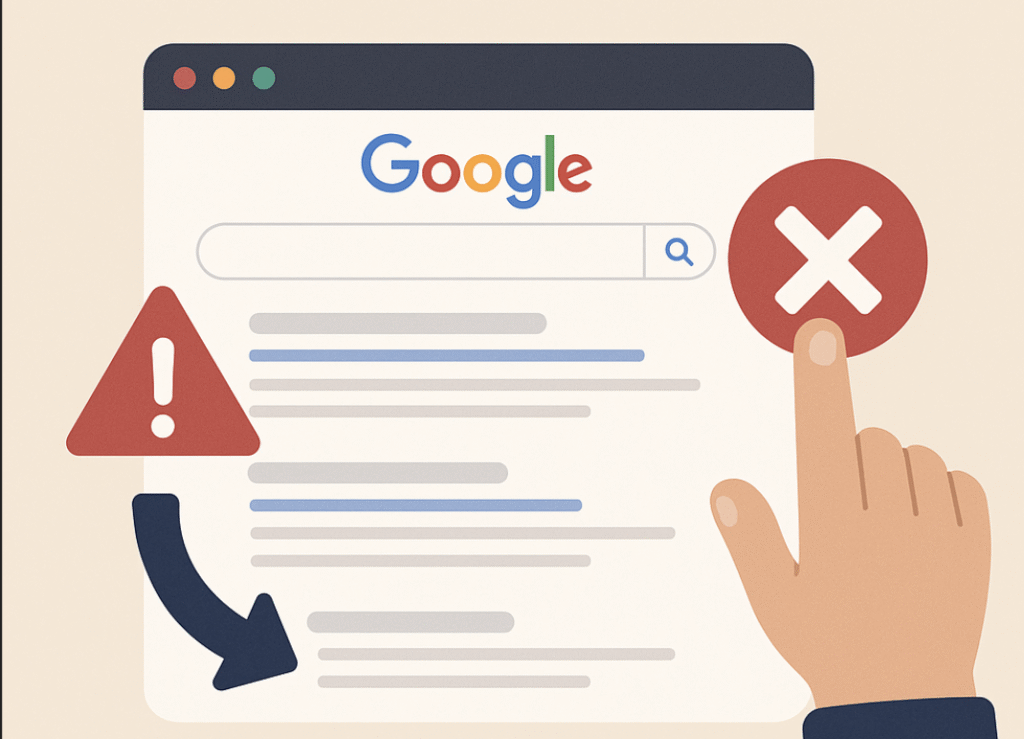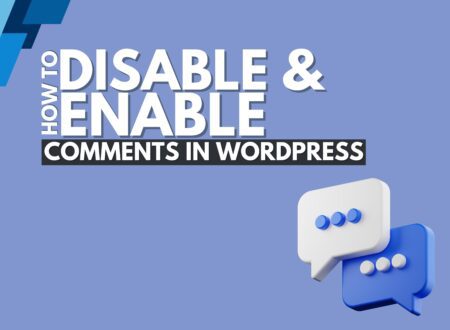It’s very important to know how to exclude a website from Google search because, as we know, the vast availability of the internet can be both a blessing and a curse.
While it holds a treasure trove of information and opportunities, it also harbours islands of content we’d rather leave undiscovered. Enter the realm of exclusion, where we learn to control what washes ashore on our Google search results.
Do you want to remove your website (or someone else’s) from Google search results? Whether it’s outdated content, privacy concerns, or a hacked site, excluding a page from Google can be necessary.
Today, we embark on a quest to eliminate the unwanted, to master the art of excluding websites from Google search. In this guide, you’ll learn 4 proven methods to remove a website from Google Search—step by step.
Why Remove a Website from Google Search?
Let’s face it, not all websites are created equal. Some peddle misinformation, others spam the digital streets, and some simply hold content you have no desire to see again. Perhaps you’re tired of stumbling upon competitors in your search results, or maybe you’d prefer to filter out news of an ex you’ve finally moved on from. Whatever the reason, the power to curate your digital landscape is within your grasp.
Here are common reasons people exclude sites from Google:
- Privacy protection – Remove personal or sensitive info.
- Outdated content – Delete old pages that no longer matter.
- Duplicate content – Avoid SEO penalties for copied content.
- Hacked/spammy sites – Block malicious or low-quality pages.
- Rebranding – Hide an old website after a business name change.
According to Google, over 1 billion removal requests are processed yearly. If you need to remove a page, follow these methods.
Ways to Exclude a Website From Google Search
Google opens a toolbox of options for banishing undesirables. Let’s explore your weapons of choice:
- The “-site:” Operator: This mighty warrior is your first line of defence. Append “-site:” followed by the website’s domain name to exclude all results from that specific site. For example, “-site:example.com” will send unwanted content from “example.com” packing. Remember, precision is key – spell the domain name correctly!
- Advanced Search: Feeling adventurous? Google Search’s advanced options offer a deeper trench in the exclusion battle. Go to “Settings” > “Search settings” > “Advanced search,” and you’ll find a dedicated field for “site or domain.” This allows you to target specific subdomains or entire domains from different websites.
- Personal Blocklist (Chrome extension): This powerful ally takes exclusion to the next level. Once installed, simply visit a website you want to banish and click the extension button. Voila! It vanishes from your future Google searches. Plus, you can manage your blocklist and even import blocked domains from other users.
- Domain-level Blocking (Paid Services): For businesses or individuals with specific needs, some paid services offer more granular control over search results. These services allow you to block entire domains, subdomains, or specific URLS at a project or even organisation level.
There are some other methods to remove the website from google serp, and a step-by-step guide is here
Method 1: Remove a Website Using Google Search Console (Best for Site Owners)
If you own the site, Google Search Console (GSC) is the easiest way to remove pages.
Steps:
- Go to Google Search Console and sign in.
- Select your website property.
- Click “Removals” in the left menu.
- Choose “Temporary Removals” (lasts 6 months) or “Clear Cached URL” (quick fix).
- Enter the URL and submit.
Note: This won’t delete the page from the internet—just Google’s search results.
Method 2: Block Pages with Robots.txt (For Developers)
If you want to stop Google from crawling certain pages, use robots.txt.
How to Do It:
1. Open your website’s root folder (via FTP or hosting file manager).
2. Find or create a robots.txt file.
3. Add these lines to block Google:
User-agent: Googlebot
Disallow: /your-page-url/ 4. Save and upload the file.
Warning: This only stops future crawls—it won’t remove already indexed pages.
Method 3: Use a “Noindex” Tag (For Permanent Removal)
A noindex tag tells Google not to show a page in search results.
Steps:
Edit the webpage’s HTML <head> section.
2. Add this meta tag:
<meta name="robots" content="noindex"> 3. Save and republish the page.
4. Request indexing in Google Search Console for faster removal.
Method 4: Request Removal of Someone Else’s Website
If you don’t own the site but want it removed (e.g., for privacy), use Google’s Removal Request Tool:
- Visit Google’s Remove Outdated Content page.
- Enter the URL you want to remove.
- Submit a valid reason (e.g., personal data, legal issue).
Note: Google reviews each request manually—approval isn’t guaranteed.
How Long Does It Take to Remove a Site from Google?
- Fastest: Temporary removals (1-2 days).
- Standard: Permanent removals (a few days to weeks).
- Noindex/robots.txt: Can take weeks as Google recrawls the site.
Do’s and Don’ts While Excluding a Website from Search Results
Remember, with great power comes great responsibility. Use your exclusion tools wisely to avoid inadvertently blocking valuable information or creating echo chambers of your preferences. Here are some golden rules:
- Target carefully: Be precise with your targeting, especially when using the “-site:” operator. A misspelt domain name can unintentionally block relevant results.
- Use in moderation: Don’t become a digital hermit! Over-exclusion can limit your exposure to diverse viewpoints and valuable information.
- Remember temporary solutions: Unpublishing or deactivating a website isn’t permanent. If you think you might want to access the content again later, consider alternative solutions like bookmarking or saving specific pages.

Beyond Websites:
The area of exclusion extends beyond just websites. Google allows you to filter out specific content types, such as images, videos, or news articles. Additionally, tools like Google Alerts can be customised to automatically notify you when specific keywords or phrases appear in search results, allowing you to stay informed without encountering unwanted content.
Embrace the Curated Search:
Mastering the art of exclusion empowers you to build a healthier, more productive online experience. By banishing the unwanted and filtering the irrelevant, you pave the way for a Google search that serves you, not the other way around. So, arm yourself with the tools, wield them wisely, and discover the joy of a curated search landscape that reflects your needs and desires.
Bonus: What If Your Site Gets Removed by Mistake?
If your site disappears from Google:
- Check Google Search Console for manual penalties.
- Ensure no accidental noindex tags are present.
- Submit your site again via Google’s Indexing API.
Remember:
- This is a detailed article, so consider adding subsections within each main point for more detailed elaboration.
- Include relevant screenshots or visual aids to demonstrate the use of each exclusion tool.
- Share personal anecdotes or relatable examples to engage readers and illustrate the importance of exclusion.
- Conclude with a call to action, encouraging readers to explore the different exclusion options and share their own experiences with filtering search results.
Final Thoughts
Removing a website from Google depends on whether you own it or not. For quick removal, use Google Search Console. For long-term exclusion, rely on noindex tags or robots.txt.
I trust this information equips you to navigate the intricate world of Google search exclusion. Remember, knowledge is power, and the power to curate your digital experience is yours to wield. Now, go forth and conquer the unwanted, fellow searcher!
You Should Read: How to Make an Unblocked Games Website in 2025 OR Top 10 Best Freelancing Online Earning Websites in Pakistan 2025
- How to Cancel an Invoice on PayPal: A Step-by-Step Guide - August 28, 2025
- How to Enable And Disable Comments in WordPress:2025 Update - August 28, 2025
- An Ultimate Guide to WordPress Featured Image Sizes:2025 update - August 27, 2025







